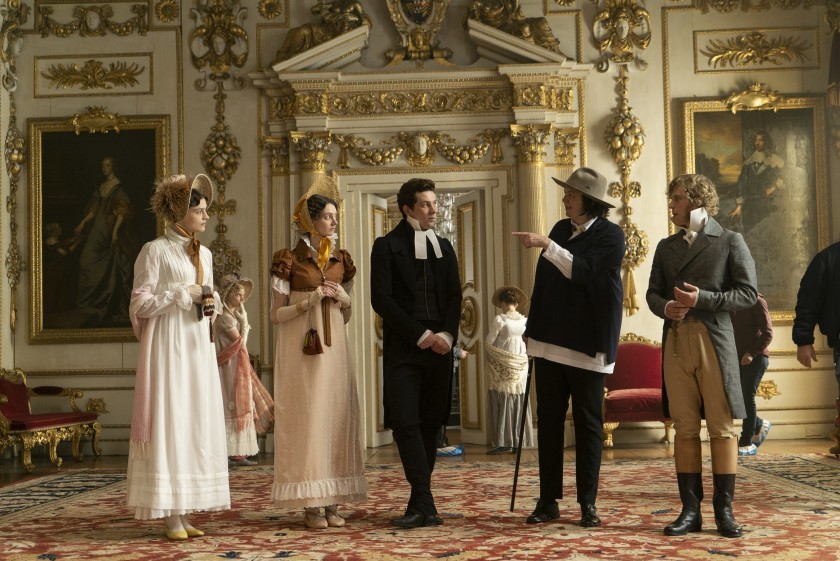
Director Autumn de Wilde (second from r.) and actors (l-r) Amber Anderson, Tanya Reynolds, Josh O’Connor and Johnny Flynn on the set of Emma., 2019. (Photo: Liam Daniel/Focus Features, Los Angeles Times)
Better late than never: Here are twenty-one new movies due to be released in theaters or via other viewing platforms this February, all of which have been directed and/or photographed by women. These titles are sure to intrigue cinephiles and also provoke meaningful discussions on the film world, as well as the world in general.
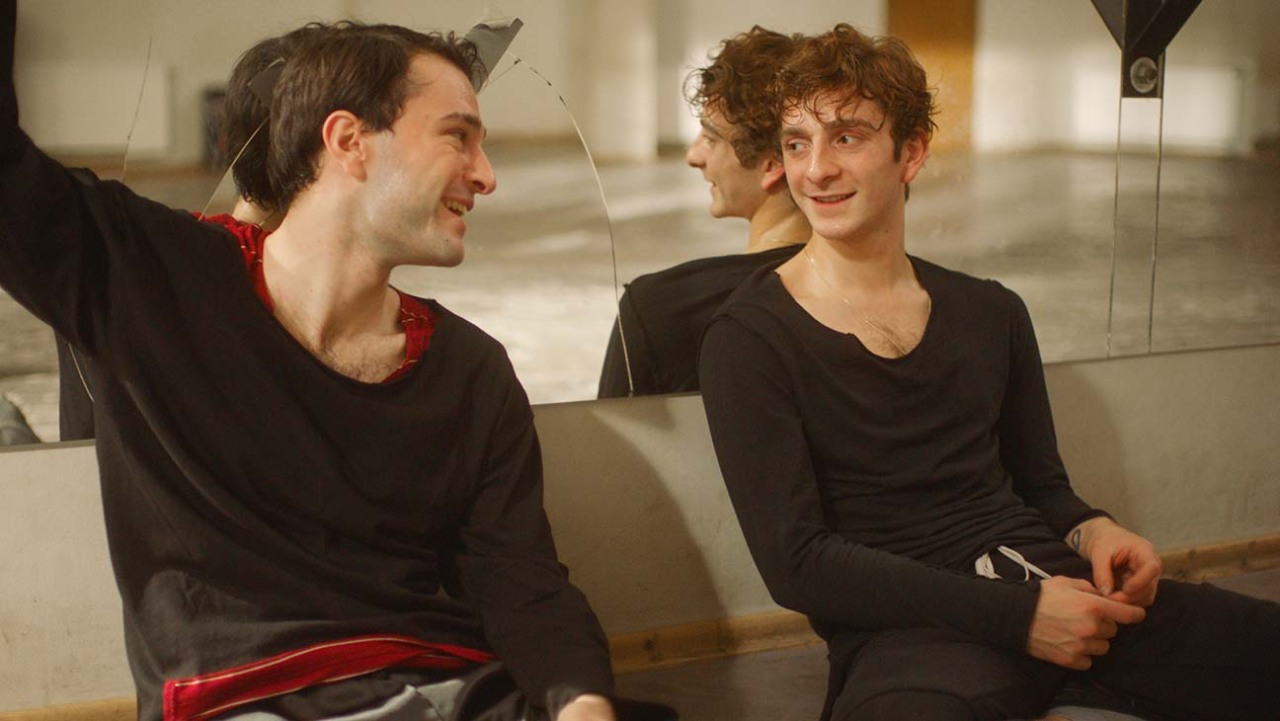
FEBRUARY 7: And Then We Danced (dir. Levan Akin) (DP: Lisabi Fridell) – The Landmark at 57 West synopsis: “A passionate tale of love and liberation set amidst the ultraconservative confines of modern Georgian society, And Then We Danced follows Merab (charismatic Levan Gelbakhiani), a talented and devoted dancer, frustrated by the rigid restrictions of his dance coach, who proclaims that there is no room for softness in a dance that ‘honors the spirit of the nation.’ Sensitive and headstrong, Merab has been training for years with his partner and best friend Mary (Ana Javakishvili) for a coveted spot in the National Georgian Ensemble, a potential escape from poverty and gateway to fame. The arrival of another male dancer, handsome Irakli (Bachi Valishvili)—gifted with perfect form and equipped with a rebellious streak—throws Merab off balance, sparking both an intense rivalry and a forbidden desire that may cause him to risk his future in dance as well as his relationships with Mary and his family. Sensual and romantic, And Then We Danced features spectacular, exciting dance sequences, as well as an unforgettable love story.”
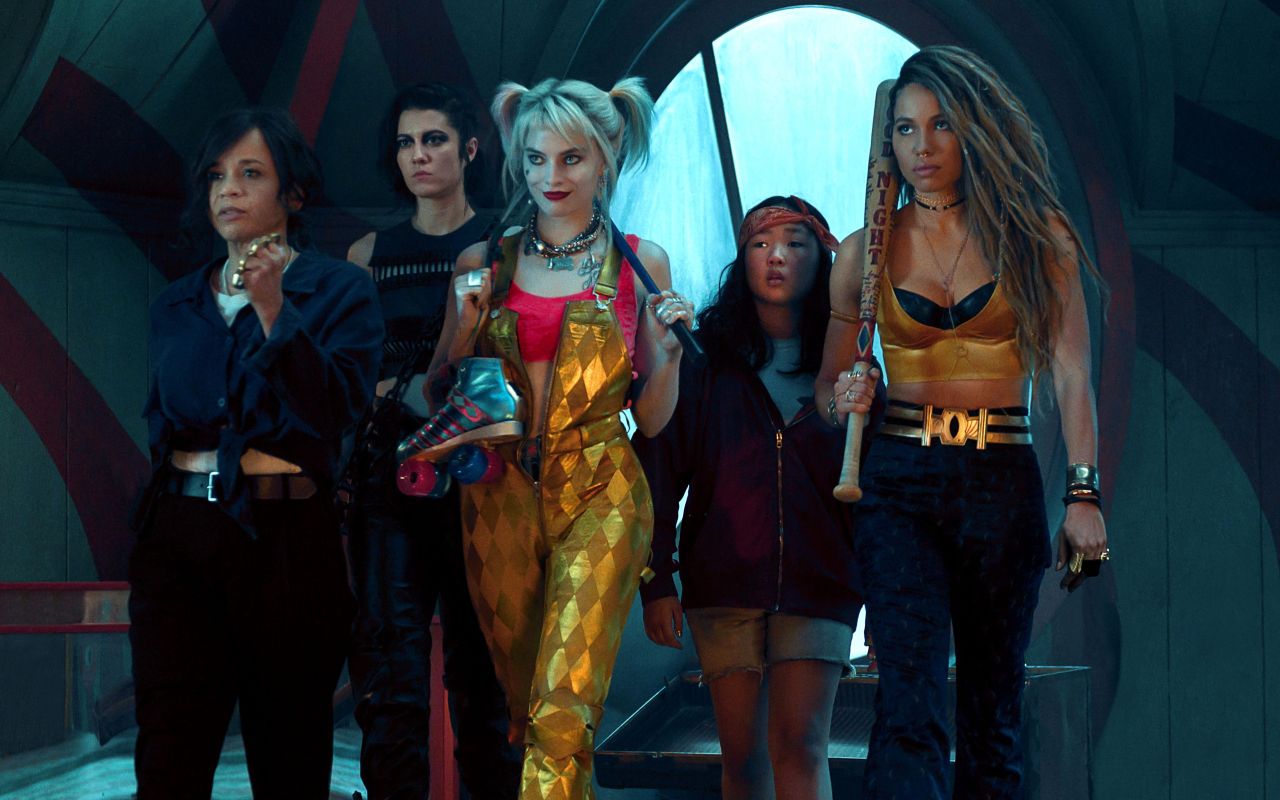
FEBRUARY 7: Birds of Prey (And the Fantabulous Emancipation of One Harley Quinn) (aka Harley Quinn: Birds of Prey) (dir. Cathy Yan) – Salon review by Mary Elizabeth Williams: “The patriarchy will be dismantled with hand grenades and hair ties. At least, that’s the impression I have after watching the campy, ultraviolent, and feminist AF Birds of Prey (and the Fantabulous Emancipation of One Harley Quinn). Sounds like a practical plan.
“As Harley (Margot Robbie) explains in the film’s opening moments, the volatile former Dr. Harleen Frances Quinzel has recently broken up with her on-again, off-again supervillain boyfriend, Joker. She’s currently running through all the stages of relationship grief — crying, cutting her own hair, eating spray cheese, getting a hyena, feeding a pervert to the hyena, blowing up a chemical plant — you know, typical girl stuff. But she soon learns the dangers of no longer having a murdering, manipulative, emotionally abusive man around to protect her, and the power of women collaborating to unleash havoc.
“Four years ago, Robbie’s gleefully unhinged performance as Harley in Suicide Squad made her an immediate fan favorite, even if critics were less charitable about the film itself. Now, Gotham City is still teeming with antiheroes who posses potent combinations of brains, combat skills and total disregard for humanity. But there’s nobody else who, like Harley, understands that a foe’s list of grievances against them may include ‘has a vagina.’ Nor is there another who might let a sadistic goon reach into her pocket . . . and pull out a tampon. Or one who, in a climactic battle, will hand a fellow combatant a welcome hair thingy to pull back her tresses. You know how Ginger Rogers did everything Fred Astaire did, but backwards and in high heels? In case nobody every told you before, it was actually backwards, in high heels, menstruating, and with sweat-drenched hair flying in her face. And it’s pretty great to see that acknowledged, anywhere.
“Directed by Cathy Yan (Dead Pigs) and written by Christina Hodson (Bumblebee), “Birds of Prey” is at once a relatively formulaic, poop jokes and car chases-strewn comic book movie and a sophisticated exploration of contemporary feminist issues. Come for the ass kicking, stay for the takedown of rape culture.
“The villain this time around is crime lord/rich creep Roman Sionis (Ewan MacGregor, making some unusual accent choices), a sadistic nightclub owner trying to get his hands on a legendary diamond that holds a secret. When nimble young pickpocket Cassandra Cain (Ella Jay Basco) gets it first, Harley’s path inevitably crosses with that of the girl, as well as world-weary cop Renee Montoya (Rosie Perez, her dancer’s energy still gloriously full throttle), nightclub singer Dinah (Jurnee Smollett-Bell) and a mysterious vigilante known as the crossbow killer (Mary Elizabeth Winstead). Again and again, the message is clear — no dark knight in shining armor or maniac in clown makeup is coming to save any of them. Women, you’re on your own. But you’re stronger when you work together. And although the ladies are far from natural allies, they must eventually join forces to save their own lives, forming a kind of Gotham City Spice Girls.
“It’s uncanny how, in many ways, this technicolor popcorn opus traverses so much of the same ground Robbie’s recent Bombshell does. It also fits neatly into the growing pantheon of other post #MeToo stories, like this month’s The Assistant and the upcoming A Promising Young Woman (the latter of which Robbie is a producer on). It airlifts the audience out of the tired, convenient ideology around what a victim is supposed to look and act like. It demands you understand that a woman can be unsympathetic in many regards and still neither invite nor deserve harassment, abuse, and assault. Harley is at once a vicious, destructive lunatic and a traumatized survivor or a toxic relationship. She does terrible things. She is a violent criminal. She is vulnerable. (She’s also a professed Bernie voter, and if Harley Quinn can take time out of her chaotic day to register to vote, you can too.) This is not a story of her redemption, but her liberation.
“The film is pointed in its insistence on this point. In a pivotal early scene, Dinah notices a drunk Harley kissing a patron in the club’s alleyway and walks away, but when she realizes an incapacitated Harley is being lured into a van, she doubles back to intervene. Because if you can’t consent, it’s not consent. And in a moment chillingly reminiscent of a similar one in Bombshell, a powerful man demands a puzzled, then terrified, woman disrobe for him. Stung by a recent setback, Roman spies a club patron simply enjoying a night out and laughing with her friends. Goaded by his chief flunky, he flies into a rage, assuming the woman is laughing at him. As punishment, he makes her stand on a table in view of the whole audience, and orders her male companion take off her dress. It’s a shocking — and effective — interpretation of Margaret Atwood’s famed quote that men ‘are afraid women will laugh at them’ and women ‘are afraid of being killed.’ At the fan screening where I viewed the movie, the audience gasped at the scene, in part, I suspect, because director Yan entirely avoided making it sexual or exploitive. Think of every movie where a woman’s clothing has involuntarily come off, and how often it’s been played for laughs or thrills or smug comeuppance. (There are lists out there, but I’d rather not.) This is a middle finger to all that.
“While Birds of Prey doesn’t have the consistent whimsy of say, Deadpool, it is no two-hour downer. (It also doesn’t have T.J. Miller, thanks.) Plenty of the film’s tone is light, funny, and subtly paradigm-subverting — women complimenting other women for how well they fight in tight pants! Taking a beat to admire how well they kill bad guys! Shine theory, yo! Frankly, after months now of exhausting hot Joker takes and white male rage, a little feminine mayhem feels welcome right about now. Go see it and judge for yourself. Bring a friend. And don’t forget to pack a few extra hair bands for the revolution.”
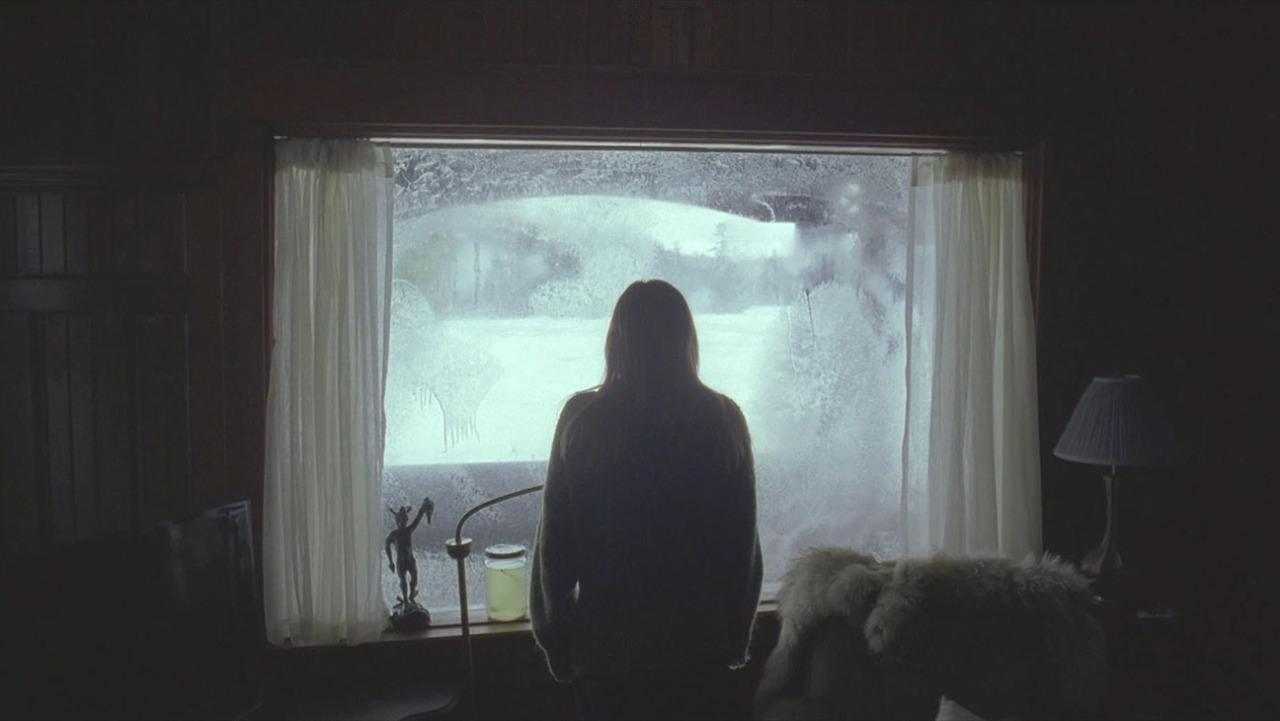
FEBRUARY 7: The Lodge (dirs. Severin Fiala and Veronika Franz) – Vulture’s Sundance Film Festival review by Emily Yoshida: “In The Lodge, faith is a kind of Chekhov’s gun, a potentially game-changing tool just lying there, waiting to be picked up by the wrong person. The faith in this case is of the Christian variety, and two mother figures — one straight-laced Catholic, the other a survivor of an Evangelical death cult — battle for control over it in the minds of their children. (It certainly adds to the tension that there is an actual gun in the scene as well.) As a psychological down-is-up horror movie, The Lodge has a few solid tricks up its sleeve. But when the smoke and mirrors clear, it’s ultimately a story about trauma, and a rather bleak one at that.
“Your heart kind of sinks for writer-directors Veronika Franz and Severin Fiala (Goodnight Mommy) in the opening moments of The Lodge, which include an empty interior that turns out to be a dollhouse, a frantic mother, and a head stuck out a car window. The eerie rhythms of the universe that gave us Deep Impact and Armageddon, Antz and A Bug’s Life, and Fyre and Fyre Fraud have conspired to make The Lodge exist in Hereditary’s shadow, but while some tonal and iconographic similarities exist, the two films jump off their shared diving board into very different corners of the psycho-mom pool.
“After a horrific opening gotcha to make sure you’re awake and paying attention, the film picks up with brother and sister Aidan (Jaeden Lieberher) and Mia (Lia McHugh) grieving the death of their mother Laura (Alicia Silverstone) and stubbornly refusing to meet their father Richard’s (Richard Armitage) girlfriend. They blame Grace (Riley Keough) for their mother’s suicide; she and their father had been separated for several years, but Laura killed herself the day he announced that he intended to remarry. Laura had an ardent Catholic faith, and the children hang on to her memory with equal fervor; Mia’s doll becomes a talisman of sorts for her memory. But, being children, they are eventually forced to spend Christmas at the family’s mountain lodge with their father and stepmom-to-be. We see them pack, all the essentials — sweaters, long johns … candles? Sea monkeys? — and hit the road.
“They have extra reason to be worried about Grace, especially after Googling her. Grace was made famous in the news as an adolescent, having been the only survivor of a cult suicide, and meant to spread the group’s apocalyptic message to the world. She seems perfectly nice in person, and even has a cute little dog that she brings along, but when we see her alone with Richard, she exhibits some signs of anxiety, and depends on a bottle of pills to keep her mental state regulated. She seems especially uneasy around the crosses left around the house by the late Laura, and a painting of the Virgin Mary in the dining room. Then Richard is called back to the city for work, and Grace and the children are left alone in the middle of nowhere, as a blizzard hits and snows them in.
“You may think you can guess where this film is going based on that description, but the interesting trick Fiala and Franz pull lies in a subtle shift in perspective. There’s no one moment in which it happens, but once we’re at the lodge, we soon realize that we’re watching things unfold from Grace’s point of view, and the children are the hostile forces with her in the house. When the power goes out and their belongings and provisions disappear, it doesn’t take long for some people’s grip on reality — including ours — to start slipping. As both the closest thing we have to a surrogate, and someone we’re not sure if we can trust ourselves, Keough’s performance walks a tricky line skillfully.
“The Lodge’s final reveal may feel like a bit of a deflation after all of the ominous elements it’s thrown together. Without giving away too much, it does feel as if Grace’s and Laura’s religion is a mere spooky prop for Fiala and Franz, an aesthetic theme to add mood and atmosphere to the increasingly desperate conditions in the house. But take away the religious themes and you still have an effectively chilling tale about how past experiences stay buried within us, and can never fully be defused.”
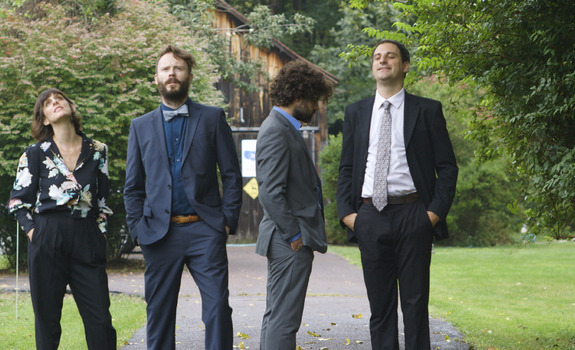
FEBRUARY 11 (on VOD): Senior Escort Service (dir. Shaina Feinberg) – Blu-ray.com synopsis: “Completely distraught after the sudden loss of her dad, filmmaker Shaina Feinberg will do anything she can to connect to him again. She catalogues her dad’s belongings – a calculator, a clock, a basket of lozenges. She forces her friends to wear his clothes and mimic his gestures. She takes a stab at making a webseries he’d always wanted to make – the name of which is ‘Senior Escort Service.’ And she combs through his journal, where she finds out about a process of dealing with grief that was invented by the grandchildren of Nazis. The process is called Familienaufstellung, which means Family Constellation, and it requires people to reenact their traumas as a means of making peace with it. This inspires Shaina to gather a group of women in a loft where they play out her trauma for her. Finally, in the hopes of singing her dad one last song, Shaina goes on a journey to his grave. On the journey, she recollects her dad’s love of acronyms, singing and ‘South Park,’ ultimately learning to live with his absence.”
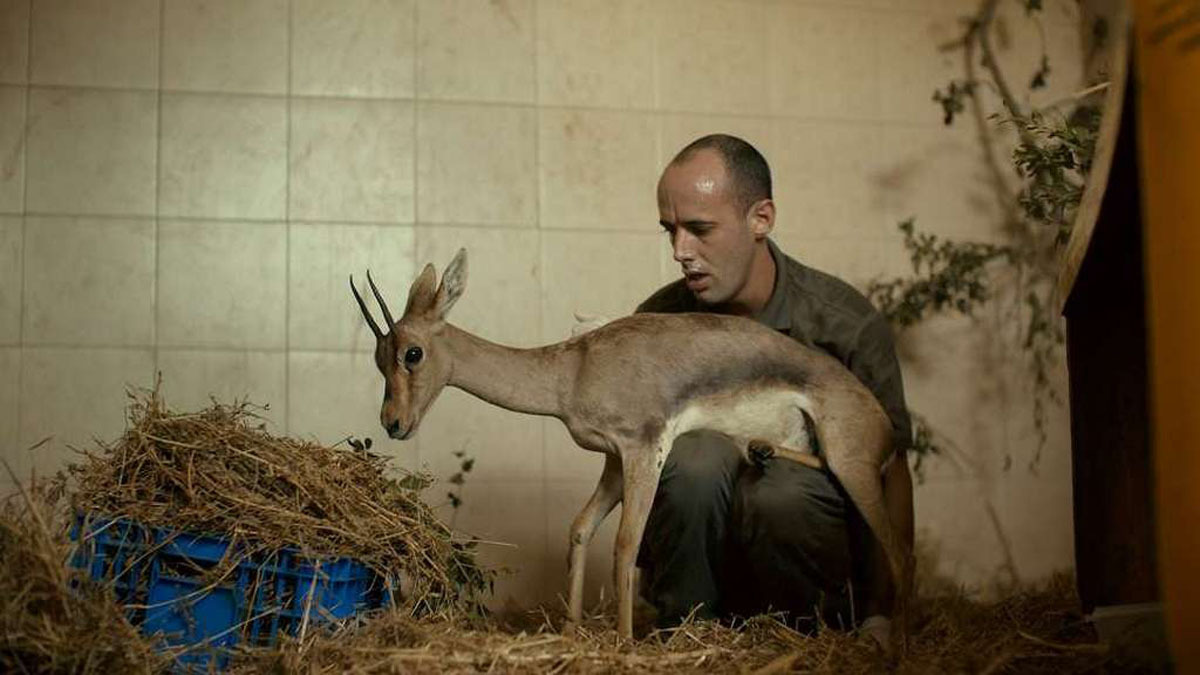
FEBRUARY 12: Wild: Life, Death and Love in a Wildlife Hospital (dirs. Danel Elpeleg and Uriel Sinai) – Docaviv International Documentary Film Festival synopsis: “Patient-doctor relationships are always complex, but when the patient cannot talk or make decisions for himself it becomes particularly complicated. This is the everyday reality for the protagonists of this film: Ariella, a veterinarian, and Shmulik, the chief caretaker of a wildlife hospital. A parallel universe with its own questions and rules. Through love and Sisyphean labor they try to treat their patients, as they are confronted with issues that are also applicable to life outside the clinic walls. Is every life a life worth living? When does help ultimately prolong the suffering? And most of all, when is the right moment to let go?”
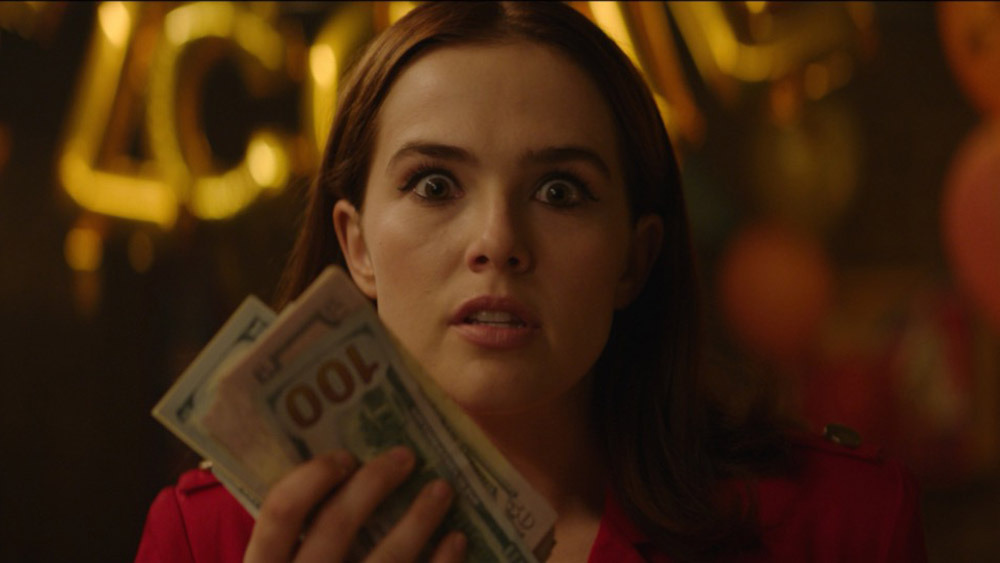
FEBRUARY 14 (in theaters & on VOD): Buffaloed (dir. Tanya Wexler) – Quad Cinema synopsis: “Director Tanya Wexler returns with a raucous comedy starring Judy Greer, Jai Courtney, Jermaine Fowler and Zoey Deutch (in a go-for-broke performance) that tracks one woman’s journey to finding her ethically dubious calling. As a young girl obsessed with making enough cash to get out of her blue-collar existence, Peg Dahl (Deutch) is betting on her sharp mind (and even sharper tongue) to get her into an Ivy League university. But a scalping scheme, brief stint in prison, and chance phone conversation with a debt collector change everything. As much an ode to the city of Buffalo as it is to the millions of Americans struggling with a seemingly dead-end economic existence, Buffaloed wrings hearty laughs out of a particularly timely and honest reality.”
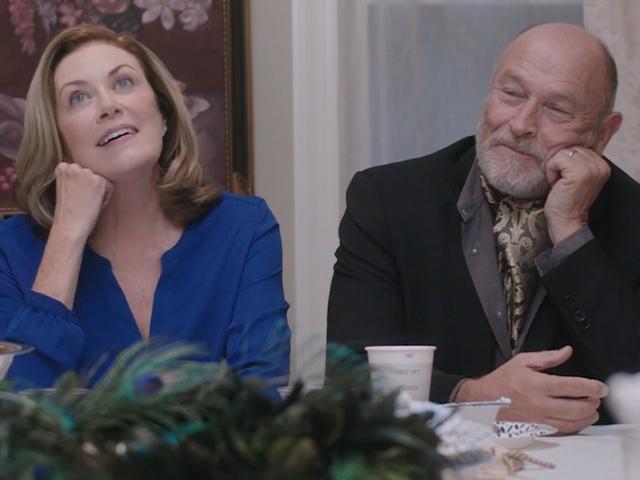
FEBRUARY 14: First Lady (dir. Nina May) – Synopsis from the film’s official website: “First Lady is a romantic comedy about a woman, not married to the president, who runs for the office of First Lady. However, she winds up getting a much better proposal than she ever expected. She is torn between a promise and her calling.
“In this modern day fairytale, when President Morales (Joel King) dies in office, his widow, Kate (Nancy Stafford), agrees to help the VP, Taylor Brooks (Benjamin Dane), in his bid for the presidency. She must stop Mallory (Tanya Christiansen), the ditzy wife of their competitor, from destroying the dignity of the position. Kate and Taylor win, but their agendas butt heads and baby boomers clash with millennials while Mallory is determined to destroy Kate. Max (Corbin Bernsen), the prince of her youth, now, literally a King, comes back into her life, disguised as a bodyguard, making her a better offer than First Lady.
“First Lady is a modern fairytale for the whole family about an autumn romance with a twist. Nina May has written and directed a classic style romantic comedy that harkens back to a genre we all love. The story shows what could happen when two people lead successful lives apart and reunite later in life to find their happily ever after.”
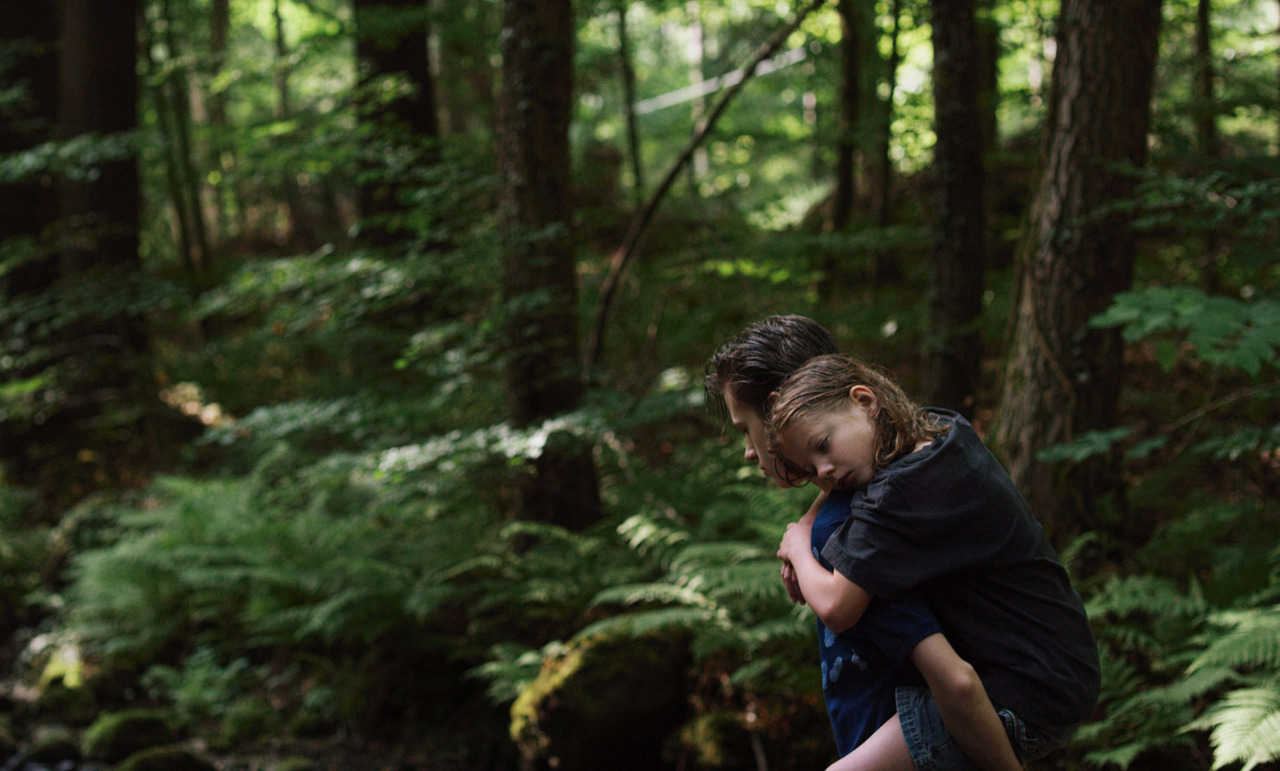
FEBRUARY 14: I Was at Home, But… (dir. Angela Schanelec) – Film at Lincoln Center synopsis: “An elliptical yet emotionally lucid variation on the domestic drama, Schanelec’s latest film — which won her the Best Director prize at the 2019 Berlinale—intricately navigates the psychological contours of a Berlin family in crisis: Astrid—played with barely concealed fury by Maren Eggert—is trying to hold herself and her fragile teenage son and young daughter together following the death of their father two years earlier. Yet as in all her films, Schanelec develops her story and characters in highly unexpected ways, shooting in exquisite, fragmented tableaux and leaving much to the viewer’s imagination, hinting at a spiritual grace lurking beneath the unsettled surface of every scene.”
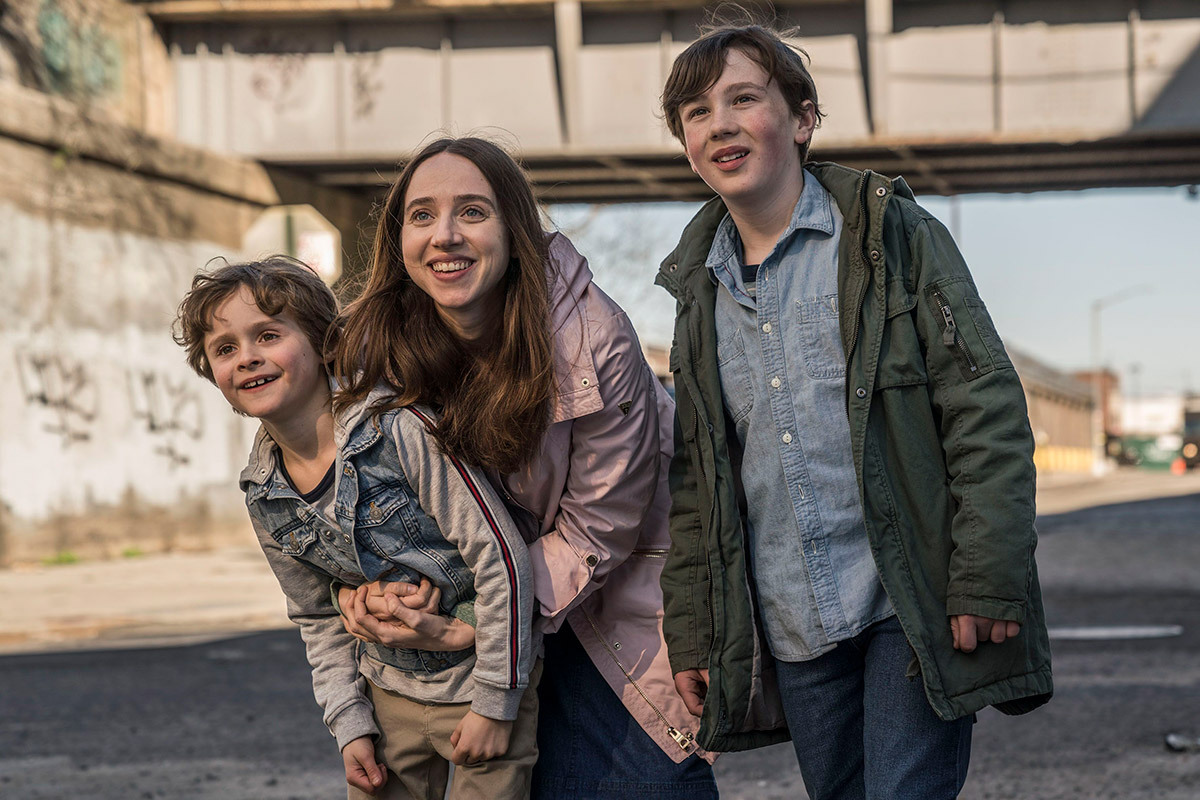
FEBRUARY 14 (in theaters & on VOD): The Kindness of Strangers (dir. Lone Scherfig) – Berlin International Film Festival synopsis: “Clara (Zoe Kazan) arrives in wintry New York with her two sons on the back seat of her car. The journey, which she has disguised as an adventure for her children’s sake, is soon revealed to be an escape from an abusive husband and father. He is a cop, and Clara is desperately trying to elude his attempts to pursue her. The three have little more than their car, and when this is towed away, they are left penniless on the street. But the big cold city shows mercy: in their search for refuge, the family meets a selfless nurse named Alice (Andrea Riseborough) who arranges beds for them at an emergency shelter. While stealing food at a Russian restaurant called ‘Winter Palace,’ Clara meets an ex-con, Marc (Tahar Rahim), who has been given the chance to help the old eatery regain its former glory. The ‘Winter Palace’ soon becomes a place of unexpected encounters between people who are all undergoing some sort of crisis and whom fate has now brought together. With a keen eye for character, Lone Scherfig explores human behaviour in extreme conditions. She depicts the harshness of life in the urban jungle, but she also demonstrates what can grow when strangers approach each other in friendship and with an open heart.”
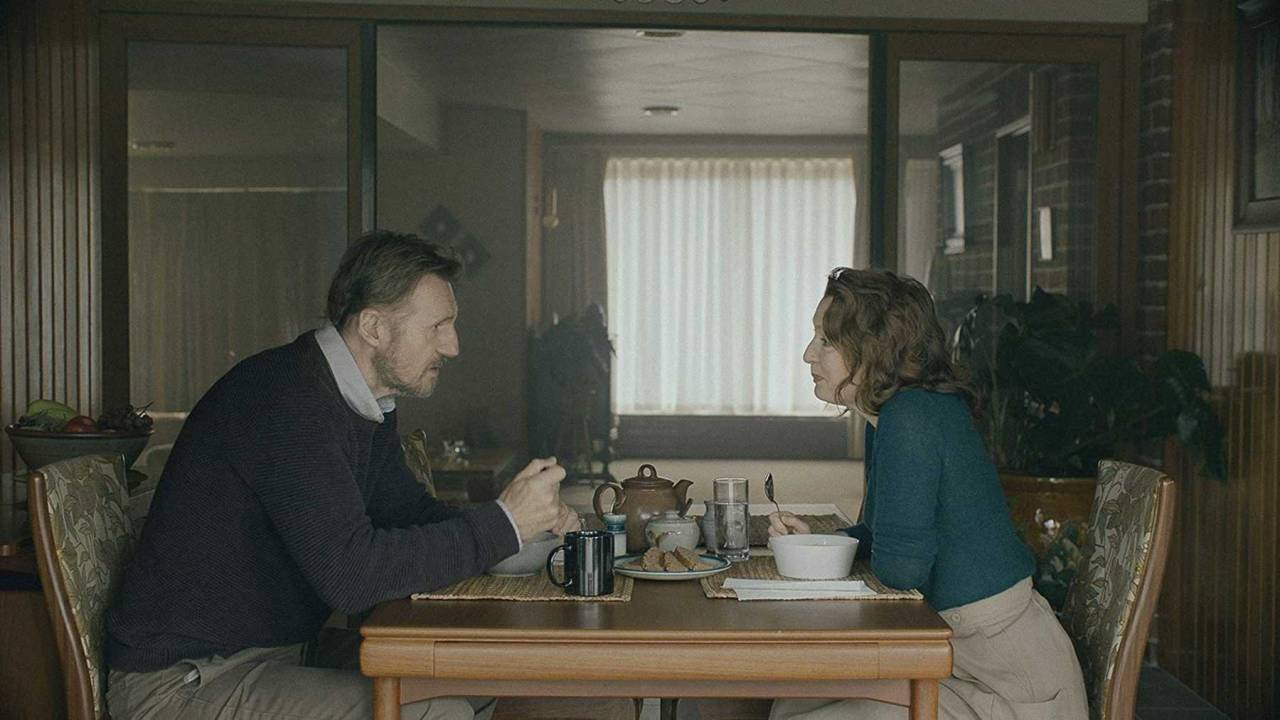
FEBRUARY 14: Ordinary Love (dirs. Lisa Barros D’Sa and Glenn Leyburn) – Angelika Film Center synopsis: “Joan (Lesley Manville) and Tom (Liam Neeson) have been married for many years. There is an ease to their relationship which only comes from spending a life time together and a depth of love which expresses itself through tenderness and humour in equal part. When Joan is unexpectedly diagnosed with breast cancer, the course of her treatment shines a light on their relationship as they are faced with the challenges that lie ahead and the prospect of what might happen if something were to happen to Joan. Ordinary Love is a story about love, survival and the epic questions life throws at each and every one of us.”
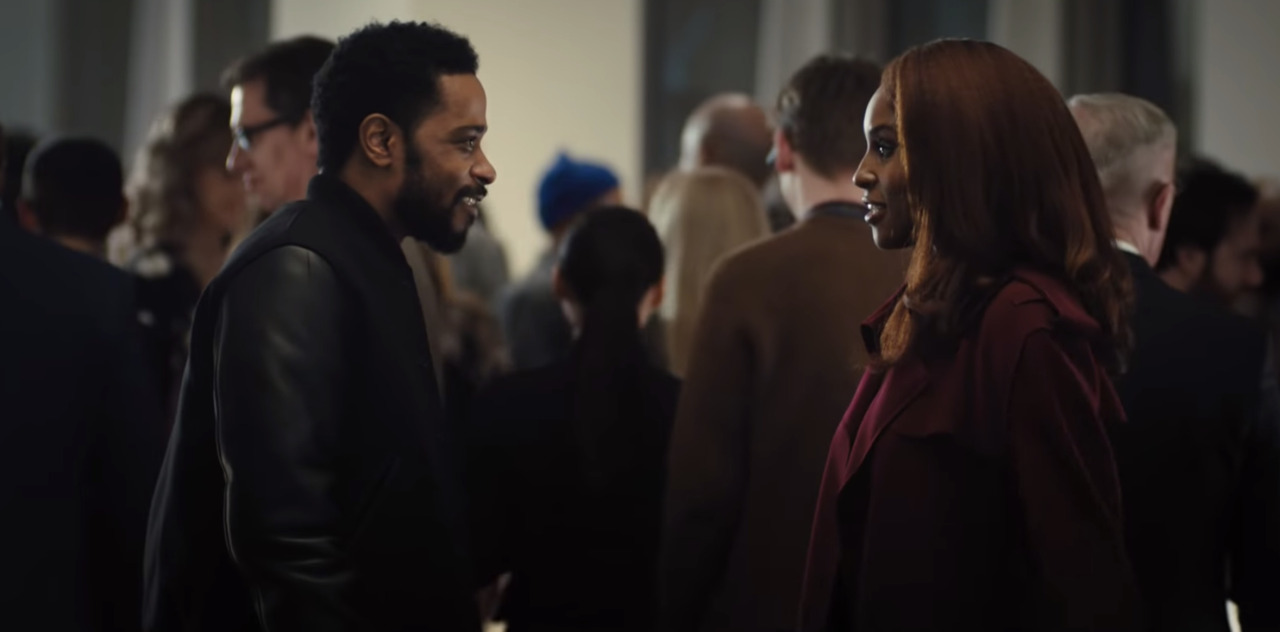
FEBRUARY 14: The Photograph (dir. Stella Meghie) – Time review by Stephanie Zacharek: “Writer-director Stella Meghie’s romantic drama The Photograph is a lovely ghost of a movie, the kind of thing we used to call, in the days before the ascent of the superhero film, a popular entertainment. We get so few love stories today that it’s easy to forget they used to be a staple of the movie-release schedule; sometimes all you want is a chance to watch beautiful people meet, fall in love and break apart, only to be reunited (or not) in a way that feels gratifying. That’s what Meghie—whose credits include the comedies Jean of the Joneses (2016) and The Weekend (2018)—gives us here. The Photograph, both thoughtful and entertaining, with a pleasurably laid-back vibe, belongs to a class of movie that barely exists anymore on the big screen. It’s also a reminder that appealing actors are sometimes the best spectacle of all.
“The Photograph is really two entwined love stories, one set in the present, the other in the late 1980s. Lakeith Stanfield plays Michael, a reporter for a New York-based magazine. On assignment in New Orleans, reporting on the lingering effects of Hurricane Katrina and the Deepwater Horizon oil spill on the area’s communities, he meets Isaac (Rob Morgan, in a fine, understated performance), a longtime resident with tales to tell. Isaac shows Michael a photograph of a woman he once loved, taken some 30 years earlier: This woman lounges in a regular kitchen chair, gazing at the camera’s lens, at us, with an uneasy mix of discontent and defiance. The subject of the photograph is a photographer herself, Christina (played, with radiant gravity, by Chanté Adams), who left Lousiana—and Isaac—for New York to pursue a dream career. Intrigued by the photograph, Michael sets out to learn more about Christina, and in the process meets her daughter, Mae (Issa Rae), a sophisticated museum curator. Mae isn’t sure she’ll ever be ready to commit to a guy, but we can see she’s as taken with Michael as he is with her. Shortly after their first meeting, he shows up at a museum event she hasn’t invited him to; their eyes meet, and the crowd of fancy-looking people milling about is virtually vaporized by the electricity between them. They flirt and share a first kiss. Later, weathering a Hurricane Sandy-like storm, they end up in bed. Both have their doubts about committing—Michael is still processing a recent breakup—but they also sense that the whatever-it-is that’s happening between them is worth exploring.
“There will, of course, be an event that drives them apart, as well as the revelation of a secret. Nothing in The Photograph will really surprise you. But surprise isn’t the point. Meghie is alive to the appeal of her actors and the easy chemistry between them. Rae, a marvelous comic actress, is somewhat restrained here, but she captures the essence of what it’s like to be a woman in the city, with a solid career, who sometimes just can’t turn off her BS detector. She gazes at Michael, with his liquid eyes and defense-melting earnestness, as if she can hardly believe he’s real. He seems to be presenting his soul to her in the smallest words and gestures, like the way he says, ‘I’m sorry’ when he learns her mother has recently passed away—Stanfield makes it all feel believable. The duo’s scenes together have an easy, loping rhythm. When Michael visits Mae’s apartment for the first time, and puts on the Al Green LP they’ve plucked from her mother’s things, your first impulse may be to roll your eyes at the obviousness of it all. But Meghie shapes the moment into a luxurious swoon. This is just how we want things to be, the way we’ve so often seen them in the movies. The Photograph captures the way people fall in love without meaning to, when they’re on their way to doing other things.
“It also features some terrific second bananas, among them Lil Rel Howrey as Michael’s brother, who’s not wrong when he says that stormy weather is the best ‘do-it’ weather. There are a few sex scenes in The Photograph, but they’re tender and discreet. Viewers are advised, however, that the movie pulls out the stops when it comes to fashion and New York City real-estate porn: Mae’s apartment is an urban palace with mile-high windows and a kitchen worthy of a cooking show. And the first time we see her, she’s wearing a voluminous trench coat in a black, white and brown graphic print, the kind of chic, daring gear you might dream of buying if you happen to land that important high-profile job—and if you don’t have to ride the subway ever again.
“Meghie takes pleasure in presenting that fantasy for us, the reverie of what it would be like to have great clothes, a cool job and a massive, gorgeous apartment. But she presents all of those things in movie language, not the vocabulary of a sterile Instagram feed. At times The Photograph feels like a modern version of a ‘30s Hollywood romance, where the heroine might live unapologetically in an all-white art deco apartment and wear marabou slippers while lounging. In other words, the trappings of Mae’s life feel earned, lived in and enjoyed, not presented solely to stoke envy and prove that she’s living her #bestlife. The boyfriend who loves her, almost instantly, for who she is—even while she’s still figuring out who she is—is also part of that fantasy. The Photograph is a story about the people we dream of being, people who find happiness despite mistakes they make along the way. It’s harder than it looks in the movies—but then, that’s why we need the movies. Vive the love story! And its power to make us believe, if only for a few hours, that maybe that could be us, too.”
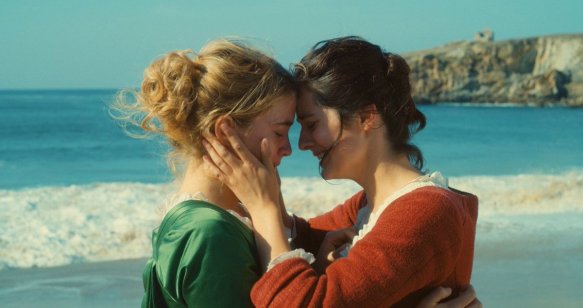
FEBRUARY 14: Portrait of a Lady on Fire (dir. Céline Sciamma) (DP: Claire Mathon) – Slate review by Dana Stevens: “Why, Héloïse wants to know, does the portrait look so little like its subject? ‘There are rules. Conventions. Ideas,’ explains Marianne, unconvincingly. The face in the painting, Marianne’s first attempt at a portrait of Héloïse, is placid, rosy, and conventionally feminine in its inoffensive prettiness; the real Héloïse (Adèle Haenel), though even more beautiful, has an intimidatingly direct gaze and a serious, even somber demeanor. But given the purpose of the portrait—Heloïse’s mother plans to present it as a gift to the Italian nobleman whom Héloïse is to marry, sight unseen—it’s understandable why Marianne (Noémie Merlant) would soften Héloïse’s features and blunt the severity of her expression. In Céline Sciamma’s austere yet sensuous fourth feature Portrait of a Lady on Fire (which opens Friday in New York and Los Angeles before a wide release in February), this frequently altered painting becomes an index of the changing relationship between the two young women: At first distant, proper and ladylike, it slowly turns into something passionate, truthful, and almost unbearably intimate.
“Of course, another reason the portrait might not resemble Héloïse at first is because she never posed for it. Furious at her powerlessness to escape the arranged marriage, she walked out midsitting on the last artist who tried to paint her, leading him to destroy his work. Now her mother (Valeria Golino) tells Héloïse that Marianne has been brought in to be her companion on her daily cliffside walks; Marianne must soak in as much about Héloïse as she can on those walks, squirrel away sketches, and work on the portrait in private. There’s more backstory, but the information needed for the film’s stark setup is simple to grasp: two women, a canvas on an easel, a secret, the sea.
“The year, according to the production notes, is 1770, but no on-screen legend or other temporal marker clues us in to that date other than the women’s corseted floor-length dresses. The location is equally indeterminate: an isolated house on a high cliff by the ocean. (The film was shot on location on the coast of Brittany.) In the early scenes especially, the story seems to take place in a timeless, almost abstract space, like the films Ingmar Bergman shot with only a handful of actors on the Swedish island of Fårö. Though men appear, namelessly and briefly, at the beginning and end, Portrait of a Lady on Fire takes place almost completely in a world made up of women: the two leads, Heloïse’s mother, the young house servant Sophie (Luàna Bajrami), and in one scene a group of village women who sing a haunting a cappella song around a bonfire. But it’s the off-screen men who call all the shots in these women’s lives; those rules, conventions, and ideas that govern Marianne’s painting of an upper-class bride-to-be are the same ones responsible for Héloïse’s desperate sense of entrapment.
“To give away any more than the fact that the two women fall madly in love would be to deprive the viewer of Portrait of a Lady on Fire’s greatest pleasures: the stolen glances on cliffside walks, the conversations that end just as the truth is about to be spoken, the quiet contests of will over the content and meaning of that ever-changing canvas. Again and again Sciamma finds ways to deliver meaning cinematically rather than in words, whether through the placement of faces in the frame or a detail revealed obliquely in a mirror. In addition to being a swoon-worthy romance—a bodice-ripper in which corsets are not torn but slowly, lovingly unlaced—this is a meditation on feminism, art, and feminist art, as embodied by the portrait of the title but also by the embroidery being stitched by Sophie the housemaid—and, late in the film, by an extraordinary artistic collaboration the three young women undertake together. Without ever needing to spell it out, Sciamma makes clear that the weight of patriarchy means that this idyll by the sea may be these young women’s one chance to experience anything like real passion or freedom. That knowledge, on both the audience’s part and the lovers’, lends every moment of their time together—a fragment of music Marianne plays for Héloïse on the harpsichord, a shared reading of Ovid’s Metamorphoses—a kind of desperate poignancy.
“Adèle Haenel, the fierce-eyed, dark-browed beauty who plays Héloïse, may be familiar to audiences from her roles as an uncompromising AIDS activist in the 2017 French drama BPM or a young Belgian doctor in the Dardenne brothers’ The Unknown Girl. She’s also Sciamma’s romantic partner in real life and has already played the object of desire in the director’s debut film, Water Lilies. That real-life connection, whether you go in knowing about it or not, adds another layer to what’s on screen: the story of one woman attempting to render her love for another, not only with a paintbrush but with a camera. As Marianne, Noémie Merlant is also extraordinary: As she stands at the easel her huge dark eyes take in every detail of her beloved’s face, and though she didn’t do the painting herself (the portraits in the film are by the artist Hélène Delmaire), you completely believe she could have.
“Portrait of a Lady on Fire is that rare movie in which every choice feels thought through, meaningful, and right, from the costumes by Dorothée Guiraud to the cinematography by Claire Mathon. (When it comes to collaborating on feminist art, Sciamma walks the walk.) When the musical passage Marianne plays for Héloïse early in the film—the ‘Summer’ section of Vivaldi’s Four Seasons—returns at the end in its full orchestral glory, there’s a sense of inevitable, if tragic, completeness. Just like the short time the lovers have together, Portrait of a Lady on Fire is minimal but perfect, without an image, a glance, or a brushstroke to spare.”
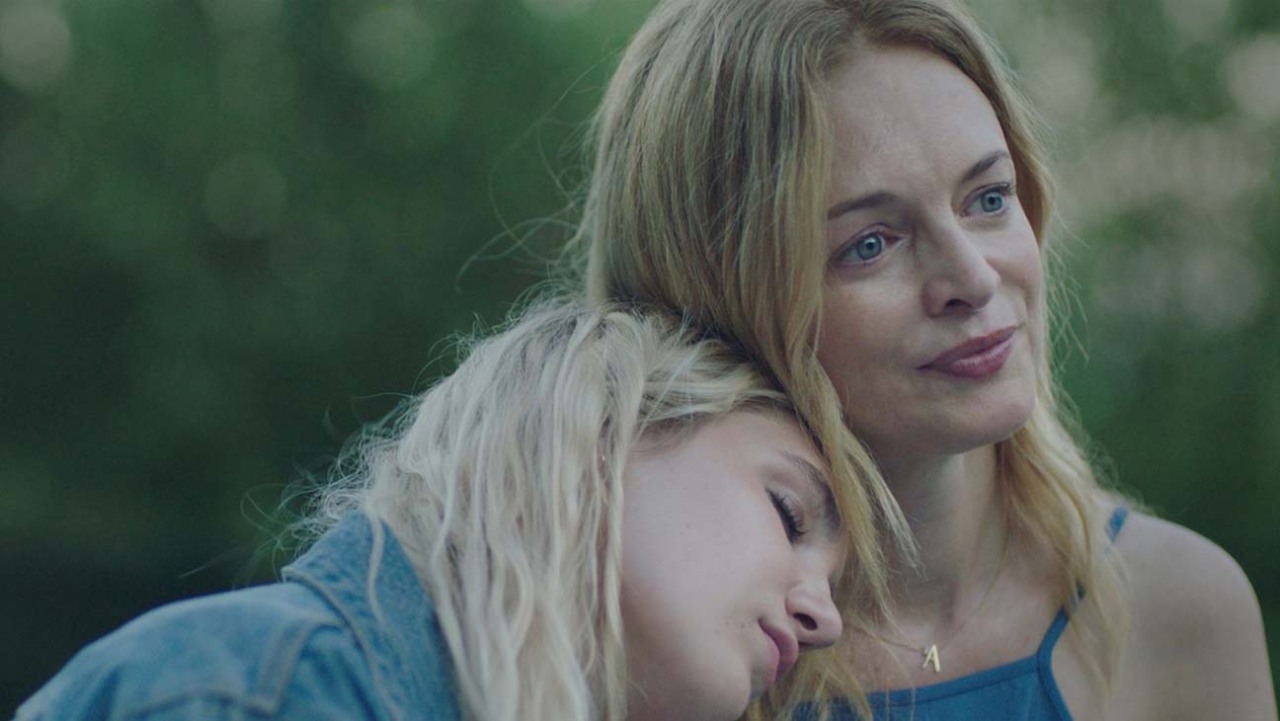
FEBRUARY 14 (in theaters & on VOD): The Rest of Us (dir. Aisling Chin-Yee) – Toronto International Film Festival synopsis by Steve Gravestock: “Director Aisling Chin-Yee and screenwriter Alanna Francis make their mutual feature debut with this generous, slyly funny, and at times heartbreaking paean to a most unlikely female friendship. Cami (Heather Graham) is a children’s book author and illustrator who has been raising her surly and combative teenage daughter, Aster (2016 TIFF Rising Star Sophie Nélisse), on her own ever since her ex, Craig, abandoned them to start a new life with Rachel (Jodi Balfour). When an unforeseeable tragedy leaves Rachel and Tallulah (Abigail Pniowsky), the daughter she had with Craig, evicted and with no place to go, Cami steps in and offers to put them up in her rundown camper.
“Perhaps unsurprisingly, Cami and Rachel’s path to friendship is a rough one, what with years of simmering resentment constantly threatening to spill over. Those old tensions are exacerbated when both mothers hit it off with the other’s daughter, each offering quantities of understanding that the birth parent can’t. This already tenuous situation is even further complicated by the secrets that all concerned are hiding, even the outwardly saintly Cami.
“As unpredictable and recognizable as real life, The Rest of Us is propelled by a compassion for all of its characters (even when they behave badly), following them as they learn how to embrace life, how to be loyal, and how to forgive one another and themselves.”
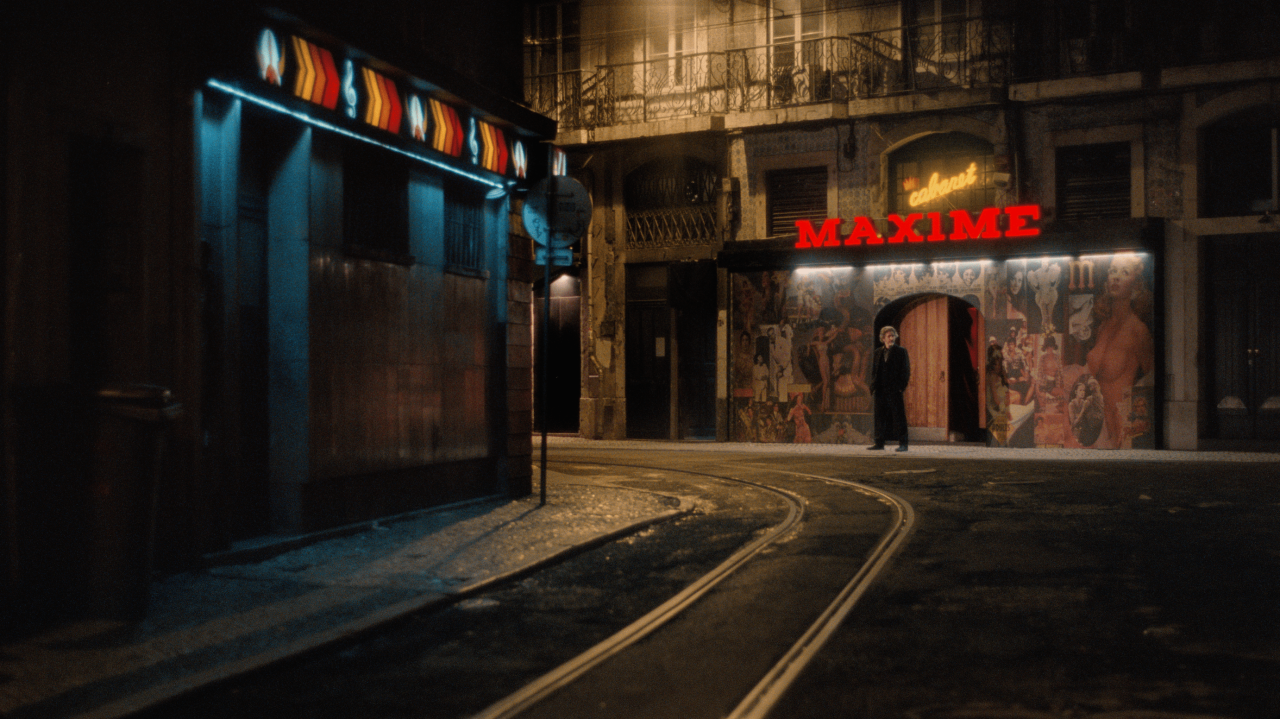
FEBRUARY 21: Cabaret Maxime (dir. Bruno de Almeida) (DP: Lisa Rinzler) – Metrograph synopsis: “Michael Imperioli plays Bennie Gaza, the owner of Cabaret Maxime, a nightclub specializing in burlesque and striptease located in an old red-light district. Bennie is old school. He runs his business like a family operation, struggling to balance the individual needs of his performers with those of his manic-depressive wife—but the forces overseeing the gradual gentrification of the neighborhood are trying to squeeze him out, not stopping at the threat of violence. A finely shaded, character- driven thriller from Portuguese filmmaker de Almeida, providing Imperioli one of his richest film roles to date.”
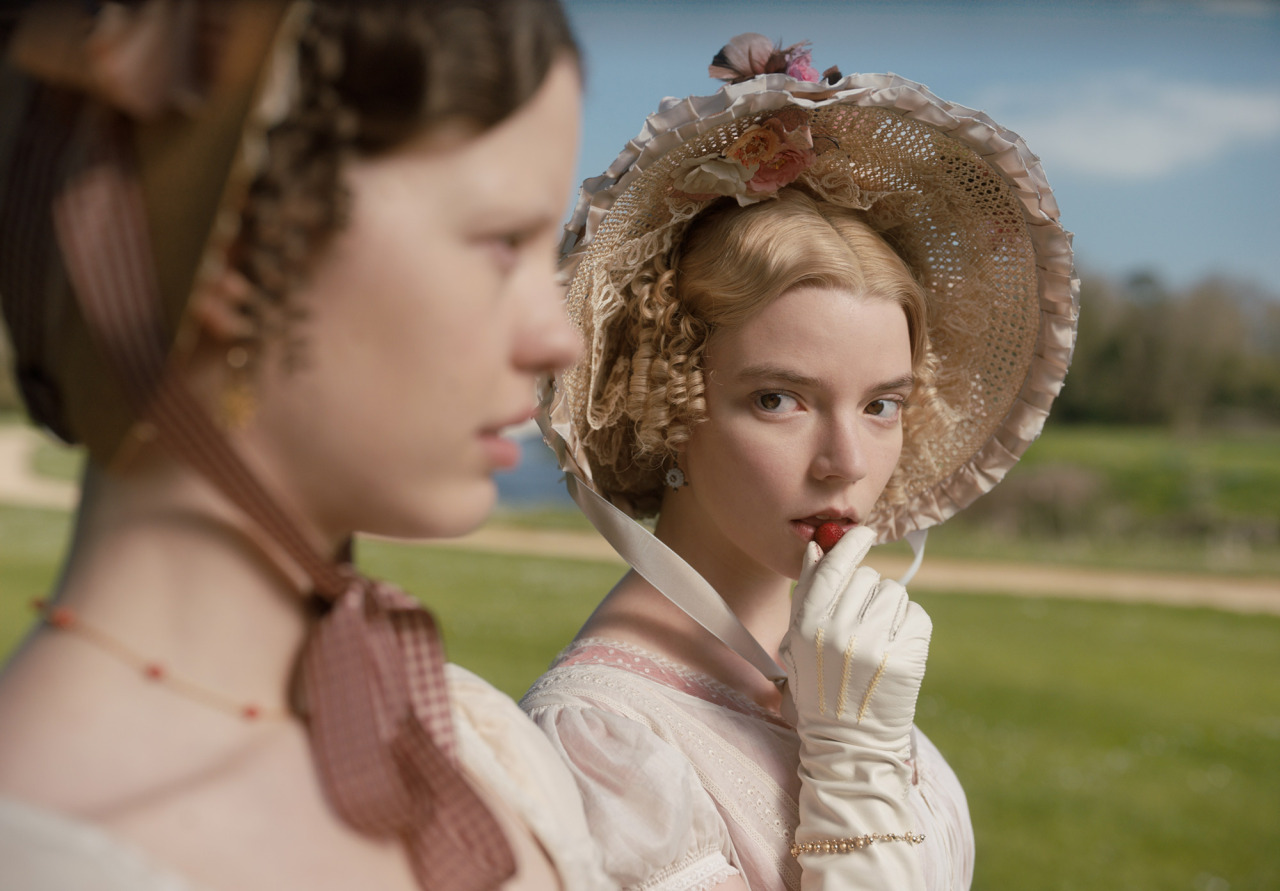
FEBRUARY 21: Emma. (dir. Autumn de Wilde) – NPR review by Justin Chang: “The latest adaptation of Jane Austen’s Emma is as handsome, clever and rich as its famous heroine — and I mean ‘rich’ in the caloric sense, as well. I wanted to snack on every pastel-hued surface of Kave Quinn’s production design, which suggests nothing less than a frosted cupcake come to life — a feast of lace bonnets and high collars, gilded frames and glass chandeliers.
“Happily, all this decorative excess serves a purpose. This is the first feature from the photographer and music-video director Autumn de Wilde, and while she has an obvious eye for beauty, she has an equally sharp eye for the absurd. There’s a touch of Wes Anderson archness to her aesthetic, the way her camera both flatters and mocks the cavernous drawing rooms and sunny meadows of the 19th-century English village of Highbury. De Wilde knows that something as simple as a symmetrically framed shot of her characters can serve as a silent punchline. Her style is an ideal marriage of visual extravagance and satirical distance.
“Speaking of ideal marriages: Emma Woodhouse, the 21-year-old queen bee of Highbury, remains as irrepressible a matchmaker as ever. Anya Taylor-Joy, the actress with the piercing gaze who came to prominence in horror movies like The Witch, plays her as a somewhat chillier, more aloof heroine than, say, Gwyneth Paltrow did in 1996. But if anything, that only makes it all the more moving to see Emma’s porcelain-like facade crack as she realizes that her instincts as a judge of character were not as shrewd as she thought.
“Fortunately, her longtime family friend Mr. Knightley is there to scold and correct her at every turn. The actor and musician Johnny Flynn, so memorable in the psychological thriller Beast, brings a scruffy rock-star edge to the role of this impeccably well-mannered gentleman. The two of them spar furiously over the matter of Emma’s friend Harriet Smith, whom she’s trying to match up with the local vicar, Mr. Elton — a very funny Josh O’Connor, whom you may recognize as Prince Charles on The Crown. But Emma’s plans have a way of backfiring: Too late she realizes that the foolish Mr. Elton has fallen in love with her, not Harriet.
“The late English mystery writer P.D. James once wrote an essay championing Emma as not just a great piece of literature but also a great detective story — a series of deceptions and misunderstandings so cunningly crafted that both Emma and the reader are led up the garden path. By the end, order is happily restored and the truth is shown to have been hiding in plain sight, as Emma realizes how badly she misjudged everyone’s romantic motivations, including her own.
“If you’ve read the book or seen an earlier adaptation, you won’t be surprised by any of these revelations. The script, by the Booker Prize-winning novelist Eleanor Catton, is fairly faithful to the story and no less satisfying for it. This Emma isn’t an audacious reinterpretation like Greta Gerwig’s Little Women, which took significant liberties with a similarly beloved novel.
“OK, so some Austen purists might take issue with the early shot of Mr. Knightley’s naked backside as a servant helps him dress, or a later scene when Emma briefly lifts her skirt to warm her rear end by the fireplace. But I liked these moments of earthy humor. It’s de Wilde’s way of puncturing her characters’ pretensions, as if to remind us that they’re flesh-and-blood human beings beneath all that stately diction and period finery.
“After the effervescent comedy of the movie’s first half, the second is basically one emotional knockout punch after another, aided by a musical score that deftly balances whimsy and melancholy. It helps that de Wilde’s actors are so good at finding fresh nuances even in this timeless material. I loved every hilarious moment of Miranda Hart’s performance as Miss Bates, the village chatterbox whose stories bore Emma to no end — but who turns out to have the biggest heart in Highbury. Mia Goth is especially lovely as the naive, eager-to-please Harriet. And it should come as no surprise that the great Bill Nighy steals his every scene as Emma’s endearing hypochondriac of a father. He’s a perfect mascot for the movie — impeccably dressed, knowingly ridiculous and awfully hard to resist.”
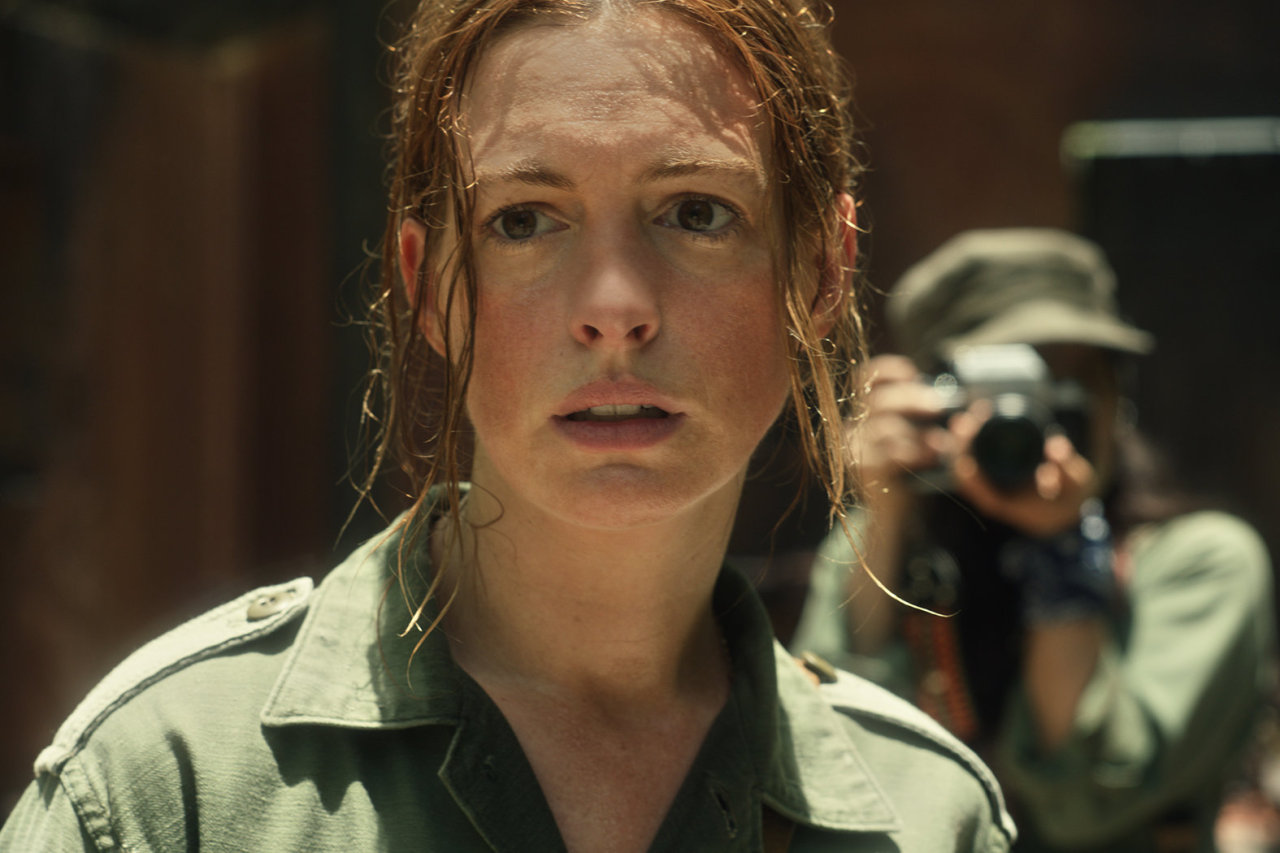
FEBRUARY 21 (streaming on Netflix): The Last Thing He Wanted (dir. Dee Rees) – Sundance Institute synopsis: “Journalist and single mother Elena McMahon (Anne Hathaway) has rigorously investigated Contra activity in Central America for years. Frustrated when her coverage is censored, relief comes in an unexpected package: her acerbic father (Willem Dafoe) falls ill and leaves her a series of unfinished and unsavory arms deals in that very region. Now a pawn in a risky and unfamiliar game, surrounded by live ammunition in more ways than one, and alongside a U.S. state official (Ben Affleck) with whom she has a checkered past, Elena needs to parse her own story to survive. With her disenchanting life awaiting her back home, she is forced to consider what she really wants.
“Director Dee Rees (Pariah, Mudbound) is a Sundance Institute Vanguard Award winner and a lab fellow several times over, and she returns to the Sundance Film Festival with this adaptation of Joan Didion’s novel by the same name. Seasoned performances by Hathaway, Affleck, and Dafoe match the sobriety of the subject matter and convey the questionable intentions, inscrutable connections, and bitter fates of these complex characters.”

FEBRUARY 21 (on VOD): Manou the Swift (aka Birds of a Feather or Swift) (dirs. Andrea Block and Christian Haas) – Sola Media synopsis: “Manou (Josh Keaton) grows up believing he is a seagull like his parents (Kate Winslet, Willem Dafoe). He strives to swim, fish and fly like them but seems not very gifted. At Summer race he discovers Why. To his great shock he finds out he was adopted as an offspring of the much-hated Swifts. His family still stands by him, claiming he is a bird like them. Especially his seagull brother Luc (Mike Kelly) admires him wildly. One night Manou fails to guard the eggs and surrenders one to the rats. The seagulls are outraged and Manou is expelled from home. Utterly disappointed he retreats and stumbles across Percival (David Shaughnessy), a funny Guinea Fowl who cannot fly but turns out to be a deep-rooted pal. Manou checks out the swifts‘ way with his new buddies Yusuf (Yaron Mesika) and Poncho (Arif S. Kinchen) when he bumps into Kalifa, a stunning lady swift. Suddenly he is struck by an entangling flirt on top of all other troubles. Stakes are high as Rats hijack Swift eggs and a big Storm threatens the Seagulls. Manou is committed to save them both – courageous like a seagull and inventive like a swift.”
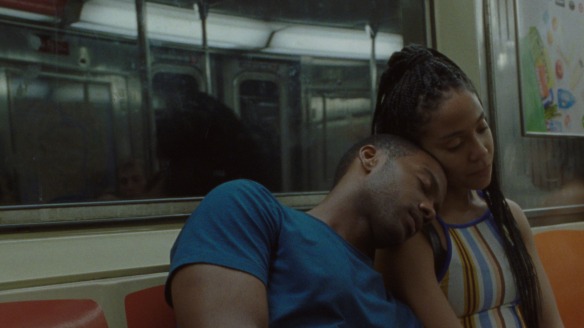
FEBRUARY 21 (in theaters & on VOD): Premature (dir. Rashaad Ernesto Green) (DP: Laura Valladao) – IFC Center synopsis: “On a summer night in Harlem during her last months at home before starting college, seventeen-year-old poet Ayanna (Zora Howard) meets Isaiah (Joshua Boone), a charming music producer who has just moved to the city. It’s not long before these two artistic souls are drawn together in a passionate summer romance. But as the highs of young love give way to jealousy, suspicion, and all-too-real consequences, Ayanna must confront the complexities of the adult world—whether she is ready or not.
“Emotionally raw, intimate, and honest, Premature is at once timeless and bracingly contemporary in its portrait of a young woman navigating the difficult choices that can shape a life.”

FEBRUARY 21 (streaming on Netflix): System Crasher (dir. Nora Fingscheidt) – Berlin International Film Festival synopsis: “Bernadette (Helena Zengel), or Benni as she prefers to be known, is a delicate-looking girl with unbridled energy. She is a ‘system crasher.’ This term is used to describe children who break every single rule; children who refuse to accept any kind of structure and who gradually fall through the cracks in Germany’s child and welfare services. No matter where this nine-year-old is taken in, she is booted out again after a short time. And that is exactly what she is after, because all she wants is to be able to live with her mother (Lisa Hagmeister) again: a woman who is totally unable to cope with her daughter’s incalculable behaviour.
“Made from her own multi-award-winning script, Nora Fingscheidt has created an intense drama about one child’s overwhelming need for love and security and the potential for violence that this engenders. At the same time, the film depicts the tireless attempts of educators and psychologists who use respect, trust and confidence to create a way forward for children who threaten to destroy others and themselves as a result of their unpredictable outbursts.”

FEBRUARY 28 (in theaters & on VOD): Disappearance at Clifton Hill (aka Clifton Hill) (dir. Albert Shin) (DP: Catherine Lutes) – Toronto International Film Festival synopsis by Ravi Srinivasan: “When Abby (Tuppence Middleton) returns to her hometown of Niagara Falls after her mother dies, she becomes obsessed with a fragmented memory from her childhood — a kidnapping she believes she was witness to. She is reunited with her estranged younger sister, Laure (Hannah Gross), and they attempt to settle their mother’s estate involving the sale of the family motel, but Abby’s compulsive desire to reconcile her past grows increasingly out of control.
“Clifton Hill is the highly anticipated third feature from Albert Shin, whose In Her Place was named to TIFF’s 2014 Canada’s Top Ten. Shin’s latest is an intense and taut psychological thriller that exposes the seedy underbelly of structural systems through the point of view of its dynamic female protagonists. Middleton delivers a stellar and complex performance as a woman obsessed with her troubled past while trying to uncover a crime to which she’s convinced she was an accomplice. Shin and co-writer James Schultz craft a sharp, suspenseful drama, equipped with twists and turns, culminating with a climax that will leave you thinking for days.
“Aided by an all-star cast — including an unforgettable appearance from David Cronenberg — Shin looks behind an idyllic tourist town and finds a questionable community with a history as sordid as the characters who inhabit it.”
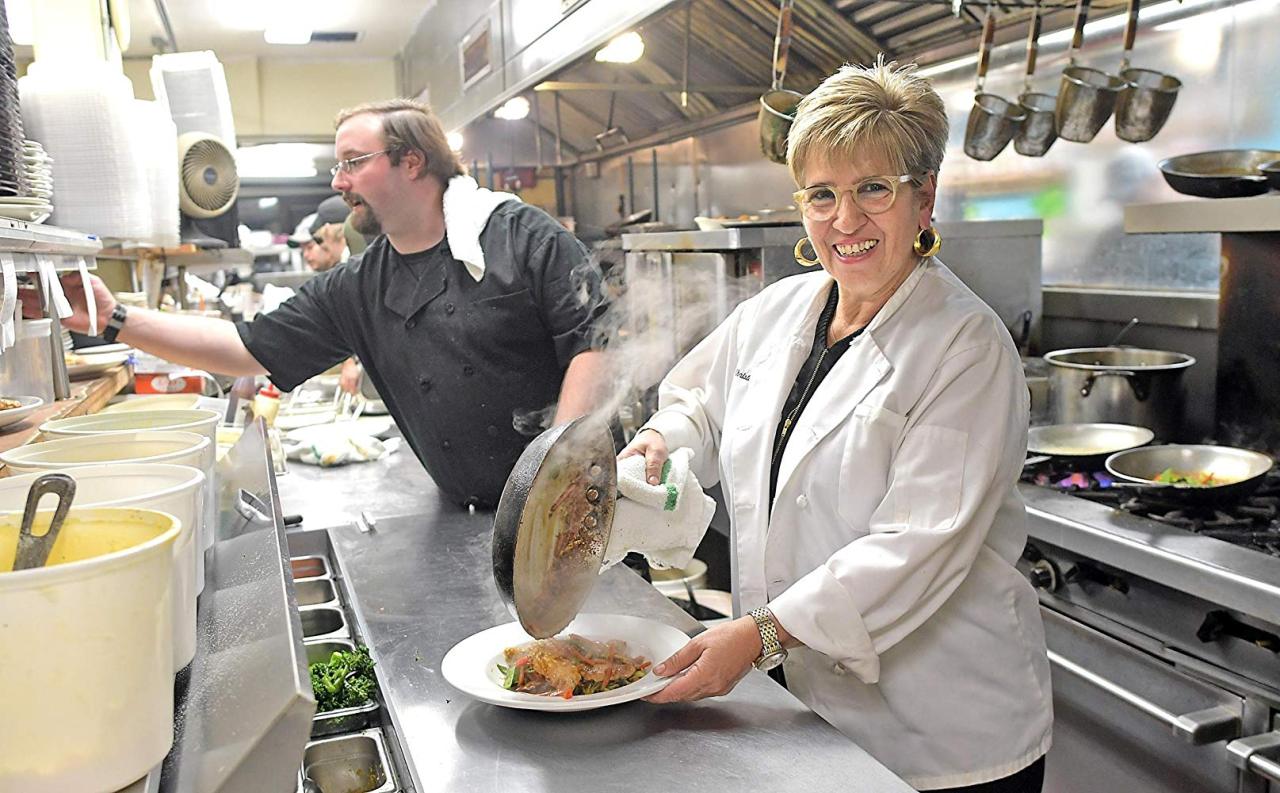
FEBRUARY 28: A Fine Line (dir. Joanna James) – Cinema Village synopsis: “A Fine Line is an award winning documentary that explores why less than 7% of head chefs and restaurant owners are women hearing candid insights from world-renowned female chefs, including: first and only Three Michelin Star chef in the U.S. Dominique Crenn, Emmy Award winning TV host Lidia Bastianich, first female Iron Chef Cat Cora, one of Time Magazine’s Most Influential People Barbara Lynch, Two Michelin Star Chef April Bloomfield, World’s Best Chef Daniel Humm and more. A central narrative unfolds of a small-town restaurateur and single mother on a mission to do what she loves while raising two kids with the odds stacked mightily against her. The film gets to the heart of what is needed to empower women across all industries, by following the personal story of this every day hero, Valerie James. A Fine Line opens up a timely conversation about gender equality, women leadership and diversity in the culinary field and beyond.”
